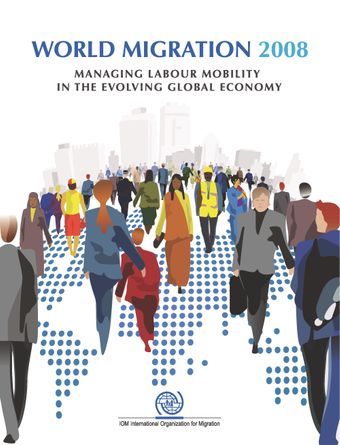- Home
- Books
- World Migration Report 2008
- Chapter
Achieving best outcomes from global, regional and bilateral cooperation

- Author: International Organization for Migration
- Main Title: World Migration Report 2008 , pp 355-392
- Publication Date: June 2008
- DOI: https://doi.org/10.18356/8a6b106d-en
- Language: English French, Spanish
Migration is by its very nature a transnational process. No country can claim to be in a position to respond to and manage these movements on its own, all the more so since the policies of other countries influence migration flows and the effectiveness of domestic policies. The awareness of the ineffectiveness of unilateral actions, increased diversity of migratory routes and patterns of flows (cutting across regions and continents; reacting to changes in external factors such as immigration policies, economic situations and employment opportunities), and interlinkages with other global issues such as trade, development and human rights have increasingly led states to acknowledge the need for international cooperation in migration management.
-
From This Site
/content/books/9789213629888s011-c009dcterms_title,dcterms_subject,pub_keyword-contentType:Journal -contentType:Contributor -contentType:Concept -contentType:Institution105

